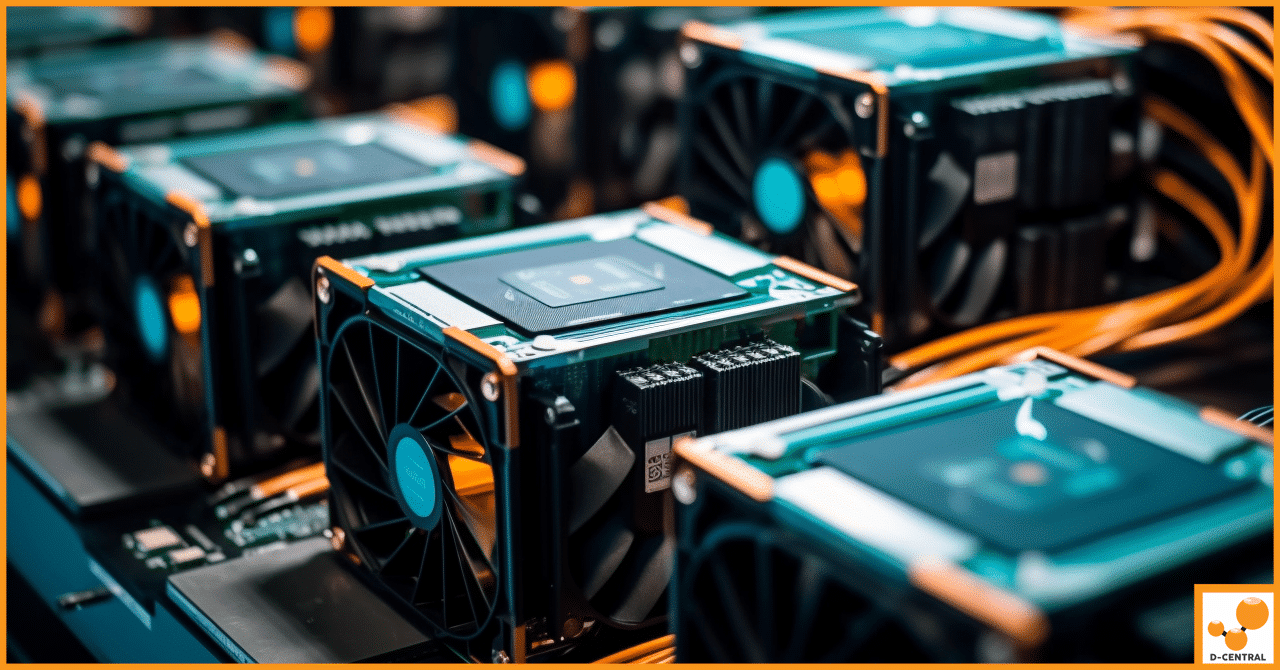
Unlock Top Savings: A Comprehensive Guide to Finding the Best ASIC Miners for Sale in Canada
Welcome to the world of cryptocurrency mining, where you can unlock top savings by finding the best ASIC miners for
4479 Desserte Nord Autoroute 440, Laval, QC H7P 6E2

In the digital age where technology rules supreme, Bitcoin, a decentralized cryptocurrency, has emerged as a revolution. Conceived and developed in 2009, Bitcoin introduced a new paradigm of financial systems, one that operates outside the realm of traditional banks and financial institutions. Its decentralization is its core strength, allowing peer-to-peer transactions on a global scale, powered by a network of computers, or ‘nodes’, rather than a central authority.
While this digital revolution marches forward, a significant part of our world remains steeped in energy poverty. As of now, approximately 1.1 million people across the globe lack access to electricity. This lack of energy infrastructure doesn’t just impact their quality of life; it also serves as a formidable barrier to economic development and prosperity.
The disparity between the technologically advanced world of Bitcoin and the reality faced by these 1.1 million people might seem vast. However, Bitcoin mining, a vital component of the cryptocurrency’s decentralized structure, could play a pivotal role in addressing this energy crisis, thus offering a new perspective on how we approach this global problem.
Bitcoin mining lies at the heart of Bitcoin’s operations, serving as the engine that keeps the Bitcoin network running. It involves adding transaction records to Bitcoin’s public ledger of past transactions, also known as the blockchain. Mining ensures the integrity and chronological order of the blockchain, preventing double-spending and maintaining consensus across the network’s nodes.
However, Bitcoin mining is not a task for ordinary computers. The process requires powerful, specialized hardware known as ASICs to solve complex mathematical problems, requiring considerable energy. As such, Bitcoin mining operations are often located in areas with cheap and abundant electricity.
The decentralized nature of Bitcoin is deeply connected to mining. Anyone with the necessary hardware and access to electricity can participate in mining, contributing to the maintenance of the network. This wide distribution of miners enhances the robustness and security of the Bitcoin network, embodying the concept of decentralization.
In essence, Bitcoin mining is much more than a means to acquire Bitcoin. It’s a process that upholds the tenets of decentralization and the principles of the cypherpunk movement, ensuring the security and integrity of a financial system designed to resist censorship and control.
As we delve into the mechanics of Bitcoin mining, it’s crucial to recognize the intricate relationship between Bitcoin mining and energy production. Due to its substantial energy demands, Bitcoin mining naturally gravitates towards locations where electricity is abundant and affordable. This dynamic creates a unique incentive to produce more energy.
One way to understand this is through the lens of ‘stranded energy’. Stranded energy refers to potential energy sources that are currently untapped, either because they are too remote or because the investment required to harness them outweighs the potential return. Bitcoin miners, always pursuing cheap electricity, are incentivized to tap into these stranded energy resources. The result? New, otherwise untapped energy sources are harnessed, contributing to overall energy production.
For example, in regions with rich geothermal activity or substantial hydropower potential, Bitcoin mining operations could use this otherwise wasted energy. In oil fields, companies have started using otherwise flared gas to power Bitcoin mining rigs, turning waste into wealth.
The beauty of this energy production spurred by Bitcoin mining is the possibility of surplus energy. Let’s say a Bitcoin mining operation sets up in a remote area, harnessing a stranded energy source to power its mining rigs. The energy produced might exceed what the mining operation needs. This surplus energy could then be redirected into the local grid, serving communities with limited or no electricity access.
This concept is not just theoretical; it’s already in action. Some real-world examples of Bitcoin mining operations have produced surplus energy, contributing to the local energy grid and providing power to previously underserved communities. This transformative approach to energy production underscores the potential of Bitcoin mining as a driving force for energy accessibility and economic development.
In a world where approximately 1.1 million people lack access to a consistent electricity supply, Bitcoin mining is a surprising and innovative solution. By seeking out affordable, often stranded energy sources for their operations, Bitcoin miners inadvertently contribute to the broader energy supply, paving the way for increased electricity accessibility in underserved communities.
Here’s how it works: Imagine a Bitcoin mining company establishing its operation in a remote region, tapping into an abundant, local, and underutilized energy source. While their primary goal is to mine Bitcoin, the energy harnessed often exceeds the consumption requirements of the mining process. This excess energy doesn’t go to waste. Instead, it can be redirected to the local grid, thus providing a new source of electricity for the nearby communities.
This approach opens a pathway for previously disconnected communities to access consistent electricity, thereby improving the quality of life for countless individuals. With this newfound access to electricity, these communities can benefit from better healthcare facilities, improved education through technology, and increased opportunities for local businesses. Over time, introducing reliable electricity can spur significant social and economic development, transforming underserved communities into thriving, self-sustaining populations.
Moreover, these mining operations can create local jobs, stimulating the economy not only through the availability of electricity but also through direct employment. In a world where traditional financial and energy infrastructures have failed to address such issues, the Bitcoin network can act as an unlikely catalyst for change and development through its unique mining mechanism.
Thus, the power of Bitcoin mining extends far beyond securing the blockchain and validating transactions. It can be a tool of empowerment, shining a light on the untapped potential of underserved communities and bringing them one step closer to a brighter, electrified future.
One of the fascinating aspects of Bitcoin is the application of game theory to its protocol, contributing significantly to the cryptocurrency’s success and resilience. Game theory, a mathematical concept, studies the strategic interactions between rational decision-makers. In Bitcoin’s case, these decision-makers are miners, nodes, and participants in the Bitcoin network.
Miners are incentivized to behave honestly and uphold the network’s integrity because the rewards – new Bitcoin and transaction fees – outweigh the potential gains from attacking the network. This built-in system of checks and balances encourages cooperation and promotes the network’s decentralization, making Bitcoin resilient to attacks.
In the context of energy distribution, this decentralization ethos can create more equitable resource allocation. Because miners are incentivized to locate where electricity is cheapest (often where it’s abundant or underutilized), this tends to decentralize energy demand. The resultant effect is that energy production increases and diversifies geographically, which can lead to underserved communities receiving access to electricity they wouldn’t otherwise have.
Bitcoin mining operations can act as an anchor load for energy production facilities, ensuring there’s always a demand for the energy produced. This demand can catalyze the construction of new energy production facilities, which can lead to increased local energy supply and the possibility of excess energy being distributed to nearby communities.
In summary, the game theory inherent in Bitcoin’s protocol leads to a more decentralized network, both for Bitcoin and potentially for energy distribution. By tapping into underutilized energy sources and creating demand in areas often ignored by traditional energy providers, Bitcoin mining can inadvertently encourage a more equitable distribution of one of humanity’s most critical resources – electricity.
As we reflect on the transformative power of Bitcoin mining, it’s impossible to ignore its immense potential for revolutionizing energy accessibility and fostering wealth creation. By leveraging underutilized energy resources and creating a market demand where there was none before, Bitcoin mining presents a unique solution to electrifying the lives of the 1.1 million people living without consistent electricity access.
The potential socio-economic impact of this energy revolution is monumental. Increased access to electricity can improve educational opportunities, enhance healthcare services, and stimulate local business growth in underserved communities. Moreover, by creating jobs and providing a steady source of income, Bitcoin mining can act as a catalyst for wealth creation, uplifting individuals and communities alike.
We encourage everyone, especially our Bitcoin community, to join us on this mission. Participate in the Bitcoin economy, learn about its potential, and contribute to a future where access to electricity and financial services is not a privilege but a right.
Bitcoin represents more than just a decentralized currency. It stands as a tool for social and political change, a beacon of hope in the pursuit of personal freedom, privacy, and equity. By creating new energy frontiers, we move closer to this goal, using Bitcoin mining not just to strengthen the network, but to illuminate the world.
We’re proud to be part of this movement at D-Central Technologies. We offer various services, from consulting, hardware sourcing, and mining hosting to ASIC repairs, maintenance training, mining support and outsourcing. Whether you’re a DIY enthusiast or prefer full-service assistance, we’re here to help you navigate the exciting world of Bitcoin mining. Let’s journey together toward a future electrified by Bitcoin.
Question: What is Bitcoin mining and its energy requirements?
Answer: Bitcoin mining is the process of adding transaction records to Bitcoin’s public ledger of past transactions, also known as the blockchain. It requires powerful, specialized hardware known as ASICs (Application-Specific Integrated Circuits) to solve complex mathematical problems—a process that requires a considerable amount of energy.
Question: How does Bitcoin mining incentivize the creation of more energy?
Answer: Bitcoin mining, due to its substantial energy demands, naturally gravitates towards locations where electricity is abundant and affordable. This dynamic creates a unique incentive to produce more energy. Bitcoin miners are incentivized to tap into these stranded energy resources, resulting in new, otherwise untapped sources of energy being harnessed.
Question: Can Bitcoin mining help bring electricity to underserved communities?
Answer: Yes, by setting up mining operations in locations with underutilized energy sources, Bitcoin miners can produce surplus energy. This surplus energy can be redirected to the local grid, providing a new source of electricity for nearby communities that previously had limited or no access to electricity.
Question: What is the connection between Bitcoin, game theory, and decentralization?
Answer: The game theory inherent in Bitcoin’s protocol leads to a more decentralized network. This decentralization ethos can create more equitable resource allocation. Bitcoin mining operations can act as an anchor load for energy production facilities, ensuring there’s always a demand for the energy produced. This can lead to increased local energy supply and the possibility of excess energy being distributed to nearby communities.
DISCLAIMER: D-Central Technologies and its associated content, including this blog, do not serve as financial advisors or official investment advisors. The insights and opinions shared here or by any guests featured in our content are provided purely for informational and educational purposes. Such communications should not be interpreted as financial, investment, legal, tax, or any form of specific advice. We are committed to advancing the knowledge and understanding of Bitcoin and its potential impact on society. However, we urge our community to proceed with caution and informed judgment in all related endeavors.
Related Posts

Welcome to the world of cryptocurrency mining, where you can unlock top savings by finding the best ASIC miners for

Bitcoin, the pioneering cryptocurrency, has revolutionized the way we think about money and financial transactions. At its core, Bitcoin operates

Bitcoin has emerged as a revolutionary digital asset, reshaping the notion of currency in our increasingly connected world. It stands